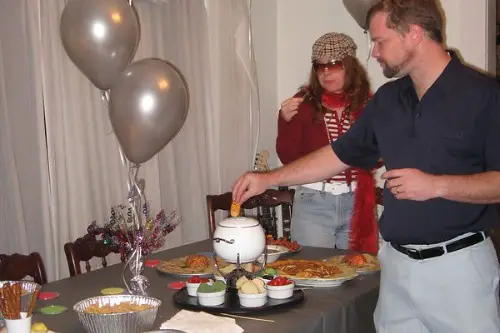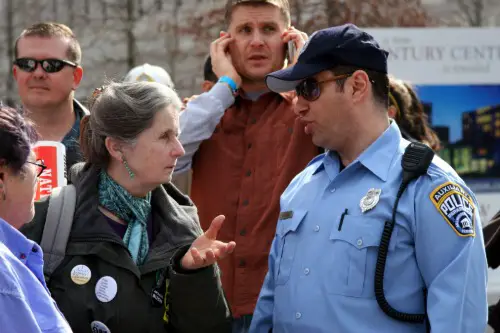1. Insisting Guests “Make Themselves at Home”

When Americans say this, they rarely mean it. Sure, the words sound nice, but there are usually unspoken rules about what’s actually acceptable. Try opening someone’s fridge or kicking off your shoes in the “wrong” spot—you’ll get looks.
This phrase puts pressure on guests to read invisible cues they may not understand. It turns what should be a relaxing visit into a silent test. Everyone walks on eggshells to avoid offense. No one actually feels at home.
2. Offering Help They Don’t Really Mean

Americans are quick to say things like “Let me know if you need anything,” especially in times of crisis. It’s a kind gesture, but often not a serious offer. When someone actually asks for help, they might get a polite excuse or radio silence.
This habit creates a confusing dynamic where support is offered, but not reliably delivered. The person in need may feel awkward for even asking. Meanwhile, the helper might feel guilty for offering something they didn’t intend to follow through on. Everyone ends up uncomfortable.
3. Asking “How Are You?” But Not Really Wanting to Know

Americans often toss out “How are you?” as a polite greeting, not a genuine question. It’s not meant to spark a conversation—just a social reflex, like saying “bless you” after a sneeze. The awkward part? If someone actually answers honestly, it throws the whole rhythm off.
This surface-level politeness can feel disingenuous, especially to people from cultures where that question signals a real check-in. It creates a strange mismatch of intent, where emotional openness is met with mild panic. No one’s truly connecting, and everyone’s just performing. So much for a warm welcome.
4. Saying “We Should Get Together Soon” With No Intention To

This is the classic empty promise of American social etiquette. People say it all the time after a brief run-in or at the end of a party. But nine times out of ten, there’s no follow-up, no scheduling, just dust in the wind.
It sounds warm on the surface, but ends up being weirdly disappointing. It keeps social ties in a strange state of limbo—friendly, but hollow. Both parties walk away with vague guilt or unmet expectations. And that’s not fun for anyone.
5. Giving Compliments That Are Just… Filler

“Love your shoes!” or “You look great!”—it’s a nice ego boost, but often not rooted in sincerity. Many Americans dish out compliments to keep things light or fill conversational gaps. That doesn’t mean they’re lying, just… not always intentional.
This can make it hard to know when praise is genuine. Over time, people may start to dismiss compliments altogether. The result? Social interactions that feel cheerful but shallow. It’s all frosting, no cake.
6. Avoiding Conflict at All Costs

Americans are often taught that direct disagreement is impolite, so they avoid confrontation like the plague. Instead of voicing concerns, they might hint, deflect, or just silently stew. This can make conflict resolution nearly impossible.
People end up bottling things up until they explode—or worse, ghost. It creates tension in friendships, workplaces, and families. Everyone walks away unsure of where they stand. Ironically, being “nice” ends up being pretty toxic.
7. Over-Apologizing for Things That Don’t Need Apologies

“Sorry” gets tossed around constantly in American conversation—even when someone hasn’t done anything wrong. Bumping into someone, interrupting slightly, or even just asking a question can all warrant a quick “sorry.” It’s meant to be polite, but it can feel excessive.
This can dilute the meaning of real apologies. It also puts people in a low-status position without reason. In group settings, it can create weird power dynamics or make others feel uncomfortable. It’s exhausting for everyone involved.
8. Forcing Small Talk at Every Opportunity

Elevator rides, grocery lines, waiting rooms—Americans feel a deep need to fill silence. Enter small talk about weather, sports, or weekend plans. It’s meant to be friendly, but can feel forced and robotic.
Some people genuinely enjoy it, but many just endure it. The pressure to engage when you’re not in the mood can be draining. It often leads to low-quality conversation that doesn’t make anyone feel better. Just let the silence breathe, sometimes.
9. Pretending to Be Excited About Plans They Don’t Want

Many Americans say “That sounds fun!” or “I’d love to!” even when they’re mentally saying “Absolutely not.” It’s part of being polite and avoiding awkwardness. But it often leads to dodged invites and flaked plans later.
This kind of social dance makes scheduling a nightmare. It’s frustrating for the person making plans and draining for the one dodging them. People end up feeling lied to, even if the lie was “nice.” It’s a lose-lose.
10. Sending Thank-You Notes That Say Nothing

The tradition of sending a thank-you note is thoughtful in theory. But often, it’s a generic “Thanks for the gift!” with zero personality. It checks a box without conveying real appreciation.
This can make the sender feel obligated, and the recipient underwhelmed. The emotional connection gets lost in the formality. In trying to be polite, the whole gesture becomes impersonal. It’s effort that feels oddly empty.
11. Smiling Even When They’re Upset

Americans are culturally conditioned to smile in almost every interaction. Whether they’re angry, sad, or anxious, the default is to grin and bear it. It’s seen as polite, professional, and approachable.
But it can be emotionally exhausting and deeply misleading. Others might not realize something’s wrong, or assume everything’s fine when it’s not. The result is a weird emotional disconnect where no one feels truly seen. A smile should be real—not a mask.
12. Inviting People Out of Obligation

“Come join us!” often gets said because it feels rude not to. But sometimes, the inviter isn’t actually hoping the person says yes. It’s more about avoiding exclusion than genuinely wanting someone there.
This leads to awkward gatherings where one or more people feel like extras. The host feels strained, and the guests feel out of place. Everyone’s trying to be polite, but no one’s having a good time. Authenticity would’ve saved the whole night.
This post 12 Things Americans Do Out of “Politeness” That Guarantee Nobody Has a Good Time was first published on American Charm.


